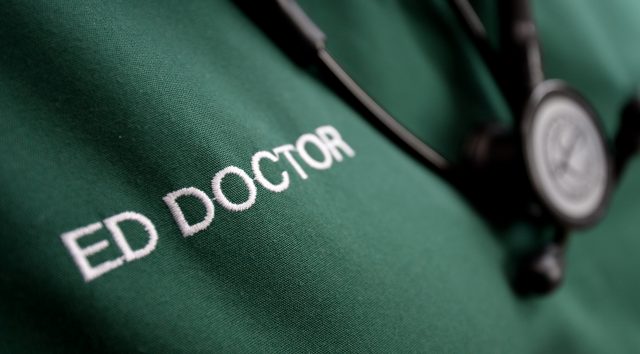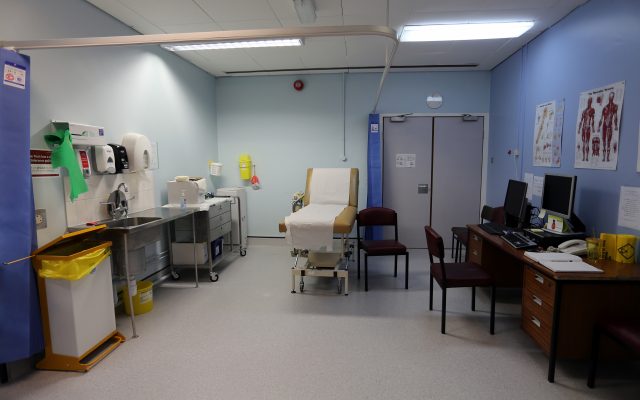Patient care in the NHS could suffer because of a workforce “crisis” among doctors, leading medics have warned.
Fewer people are choosing to enter medicine or remain in the NHS as doctors, the British Medical Association (BMA) said.
A new BMA report into pre and post-graduate recruitment of doctors has highlighted a number of concerns.

Fewer people are applying to medical school – although the courses are still highly competitive, the authors said, noting a 13% drop since 2013.
Student debt for a doctor can exceed £80,000 which could be a factor in the decline, the BMA said.
The authors also raised concerns that training places across almost three in four medical specialties in England went unfilled last year, while many specialties are facing shortfalls year on year.
The report states that applications to the foundation programme – the first year of doctors’ training following medical school – are decreasing while applications to specialty training are also dwindling.

While workforce shortages in some fields – such as general practice, emergency medicine, paediatrics and the psychiatry – are well known, other smaller specialties are finding it “increasingly difficult” to recruit new trainees.
These include allergy, clinical pharmacology, endocrinology, haematology and sexual health medicine, according to the report.
The authors said this shortage could call into question the NHS’s ability to continue providing these services in the same way they are currently provided.
The BMA said a reduction in the number of doctors progressing through training will have a significant impact on the health service’s ability to provide safe and timely specialist care.
The union has made a series of recommendations to address the shortfalls, including greater career flexibility for doctors, rota gaps to be tackled and improved workforce planning.

Dr Chaand Nagpaul, chair of council at the BMA, said: “It is deeply concerning that we are seeing a drop off at each stage of doctors’ training, we have to ask why some, who have spent many years training to become a doctor, are deciding not to continue in the profession.
“We know that many doctors are struggling with unsustainable workloads in an NHS that is understaffed and chronically underfunded.
“This has a huge impact on their morale and wellbeing, often leading to stress and burnout.
“Brexit also poses a new risk, with almost half of EU doctors considering leaving the NHS following the referendum result.
“With the NHS at breaking point, if the Government doesn’t get to grips with this workforce crisis, the NHS will struggle to attract and retain highly trained staff, and patient care will suffer as a result.”
A Department of Health spokesman said: “England’s growing and ageing population creates a number of challenges for the NHS, including ensuring the right workforce to meet changing needs.
Read about plans to expand undergraduate medical education to train up to 1,500 extra doctors each year in England https://t.co/V8IMEptiA1 pic.twitter.com/1CigN5v1QA
— Department of Health (@DHgovuk) March 14, 2017
“That is why we have recruited 11,600 more doctors to the NHS since May 2010, and last year the NHS recruited the highest number of GP trainees ever.
“We also recently announced the largest ever expansion to the medical workforce – an extra 1,500 doctors per year by 2020.”
Health Education England (HEE) director of education and quality Professor Wendy Reid said: “HEE supports 50,000 doctors in training, investing billions of pounds each year to provide a world class education that delivers safe, high-quality care for patients across the country.
“We will be leading, with partners, work to ensure that the 25% increase in medical undergraduate places, the largest ever increase of its kind, will produce doctors providing the right care in the right places to help the NHS meet the diverse healthcare needs of patients up and down the country.
“Last year saw HEE recruit the highest number of GP trainees the NHS has ever seen.
“Overall application and fill rates across all specialties are broadly comparable to last year, which is encouraging.
“However, we are not complacent and recognise more needs to be done to grow the professions further, especially in those specialties where challenges remain.”






